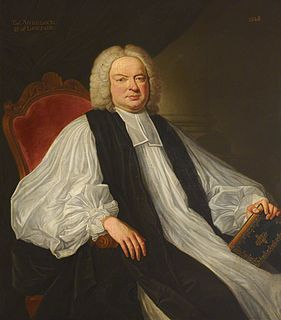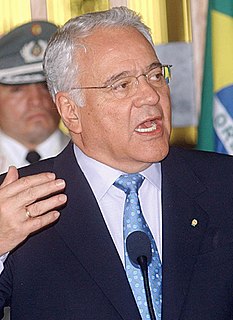A Quote by Adam Smith
But avarice and ambition in the rich, in the poor the hatred of labour and the love of present ease and enjoyment, are the passions which prompt to invade property, passions much more steady in their operation, and much more universal in their influence. Wherever there is great property there is great inequality. For one very rich man there must be at least five hundred poor, and the affluence of the few supposes the indigence of the many.
Related Quotes
Wherever there is great property there is great inequality. For one very rich man there must be at least five hundred poor, and the affluence of the few supposes the indigence of the many. The affluence of the rich excites the indignation of the poor, who are often both driven by want, and prompted by envy, to invade his possessions.
When the rich plunder the poor of his rights, it becomes an example for the poor to plunder the rich of his property, for the rights of the one are as much property to him as wealth is property to the other, and the little all is as dear as the much. It is only by setting out on just principles that men are trained to be just to each other; and it will always be found, that when the rich protect the rights of the poor, the poor will protect the property of the rich. But the guarantee, to be effectual, must be parliamentarily reciprocal.
There is not such a mighty difference as some men imagine between the poor and the rich; in pomp, show, and opinion, there is a great deal, but little as to the pleasures and satisfactions of life. They enjoy the same earth and air and heavens; hunger and thirst make the poor man's meat and drink as pleasant and relishing as all the varieties which cover the rich man's table; and the labor of a poor man is more healthful, and many times more pleasant, too, than the ease and softness of the rich.
And with respect to the mode in which these general principles affect the secure possession of property, so far am I from invalidating such security, that the whole gist of these papers will be found ultimately to aim at an extension in its range; and whereas it has long been known and declared that the poor have no right to the property of the rich, I wish it also to be known and declared that the rich have no right to the property of the poor.
We always say we are equal in front of death, but when you are rich, for example, and you have everybody taking care of you, I think that you suffer much less. It must be much more painful to die when you are poor than when you are rich. But when your heart is broken, you can be rich, poor, whatever - a broken heart, we are all equal in front of it. And I think there is no subject more serious.
Suppose a nation, rich and poor, high and low, ten millions in number, all assembled together; not more than one or two millions will have lands, houses, or any personal property; if we take into the account the women and children, or even if we leave them out of the question, a great majority of every nation is wholly destitute of property, except a small quantity of clothes, and a few trifles of other movables.
The great question for our time is, how to make sure that the continuing scientific revolution brings benefits to everybody rather than widening the gap between rich and poor. To lift up poor countries, and poor people in rich countries, from poverty, to give them a chance of a decent life, technology is not enough. Technology must be guided and driven by ethics if it is to do more than provide new toys for the rich.
They who assert the purest right, and consequently are most dangerous to a corrupt State, commonly have not spent much time accumulating property. The rich man is always sold to the institution which makes him rich. Absolutely speaking, the more money, the less virtue; for money comes between a man and his objects, and obtains them for him; and it was certainly no great virtue to obtain it.
We notice that the mind is a restless bird; the more it gets the more it wants, and still remains unsatisfied. The more we indulge our passions the more unbridled they become. Our ancestors, therefore, set a limit to our indulgences. They saw that happiness was largely a mental condition. A man is not necessarily happy because he is rich, or unhappy because he is poor.... Millions will always remain poor.

































